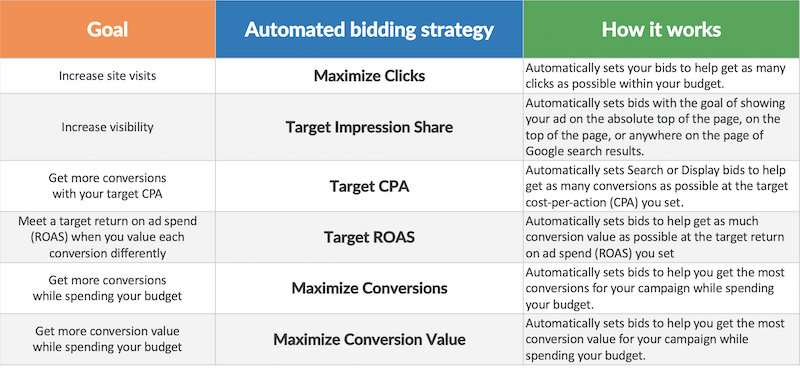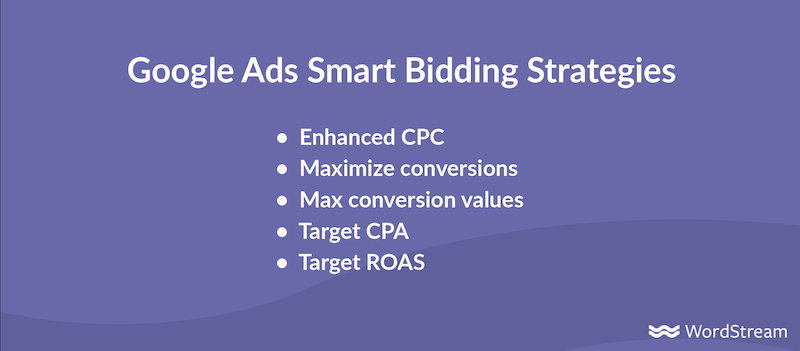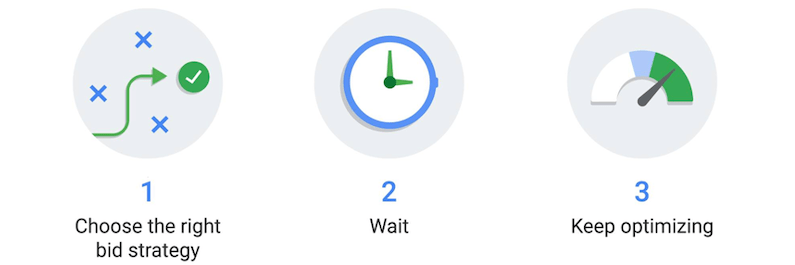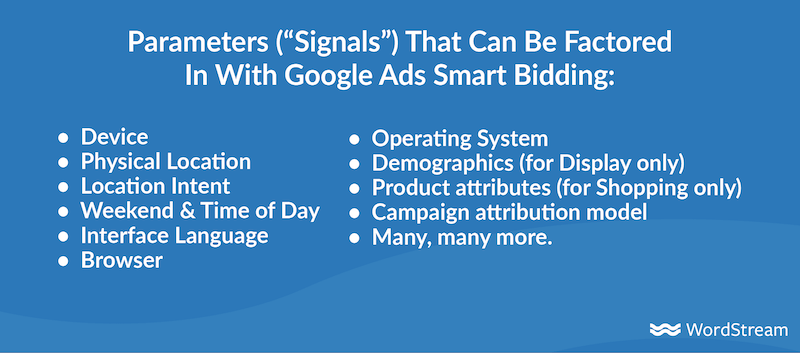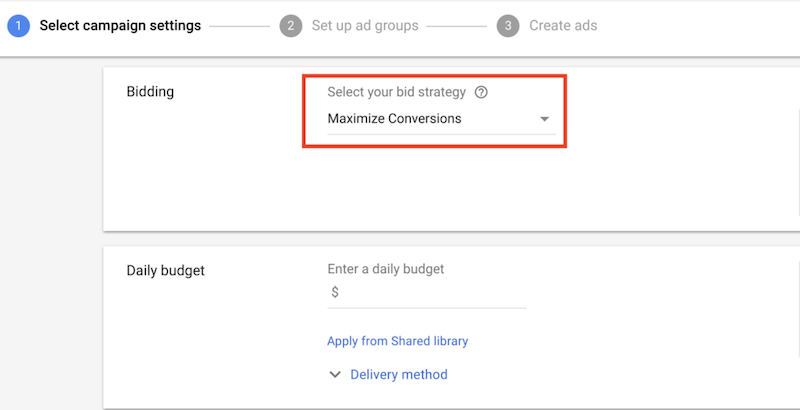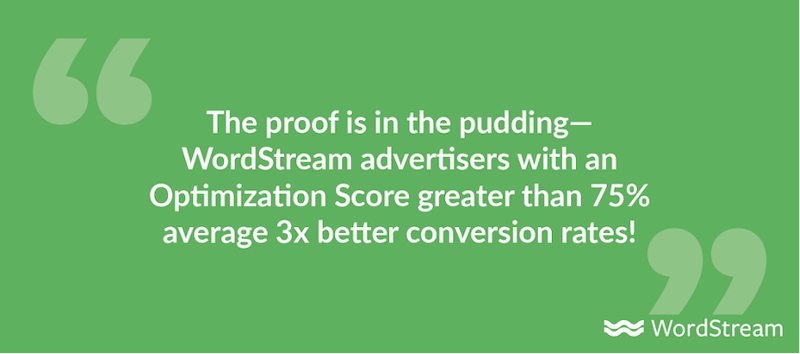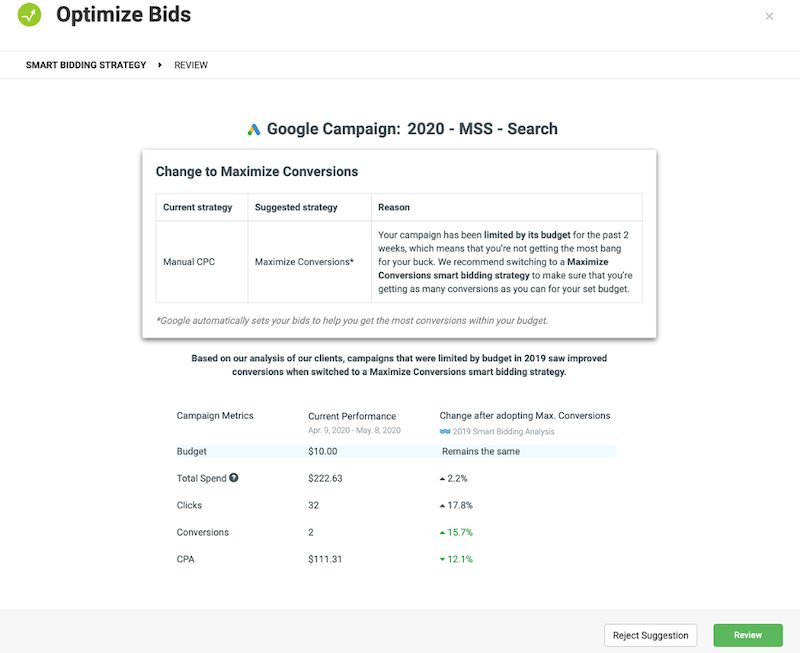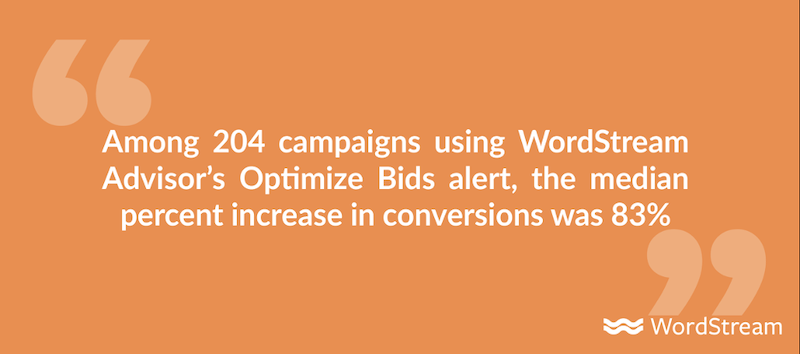
I don’t know about you, but I am exhausted. Between juggling all of my personal and professional responsibilities while also trying to stay safe and healthy during a pandemic, every day feels like running a marathon. Have I run out of gel energy packs? Yep. Are my calves cramping up at mile 22? You betcha. Am I looking for anything and everything that could help me make it successfully to the finish line? Without a doubt.
We are all running our own daily marathons right now and we each have ways of coping with the constant barrage of obstacles and challenges along the way. Many of these coping strategies involve technology, and the same goes for marketing and advertising. In this post, I’m going to talk about one particular technology that can be, well, the energy gel packs your business needs to more effectively compete in the Google advertising race: automated bidding. You will learn:
- What automated bidding is, how it functions, and when it is best to use it.
- The key benefits of Google’s automated and Smart Bidding features.
- How WordStream Advisor’s new “Optimize Bids” alert can help you apply these strategies in a meaningful way.
What is automated bidding?
Google’s automated bidding strategies will not only do the heavy lifting of bid management for you but it will also help push those monthly, quarterly, or yearly KPIs across the finish line and keep your Google Ads costs down. Before sprinting towards how Google’s automated bidding strategies are going to help you smash your business’s “race,” however, let’s warm up and stretch with the basics.
Google Ads defines automated bidding as “a bid strategy that automatically sets bids for your ads based on that ad’s likelihood to result in a click or conversion. Each type of automated bid strategy is designed to help you achieve a specific goal for your business”.
Adapted from Google’s more comprehensive automated bidding breakdown.
Note: Enhanced CPC is not included in the above visual because it is not a fully automated bidding strategy.
Common uncertainties surrounding automated bidding
Google’s definition above sounds great, doesn’t it? Yet, some advertisers are wary to relinquish control of their bids to Google Ads. This is just one of many hesitations businesses have with using Google automated bidding. In the second part of our pre-race warm-up, we’re going to tackle other common uncertainties and questions.
1. Can a computer really handle my bidding?
The manual management of keyword bids is a tedious process. Constantly assessing the performance of your ads and keywords, deciding where adjustments need to be made, and then implementing those strategies is a full-time job in itself. As a task that is complicated for an individual to complete, it’s understandable that there would be hesitation in assuming a computer could do it—much less do it well. But as you’ll learn next and throughout this post, a computer can, in fact, identify and implement bid adjustments as effectively as a human can—in much less time.
2. Isn’t automated bidding new?
There is a common misconception that automated bidding is new to the world of online advertising—it’s not! Automated bidding can be traced back as far as 2010. For over ten years, Google, backed by all the immense resources it has at its disposal, has spent time assessing and perfecting the algorithms behind automated bidding. So it’s safe to say these algorithms are smart enough to pinpoint where bid adjustments should be made, execute optimizations, and deliver results—in a fraction of the time it would take you or me to do so.
3. Can automated bidding really increase my conversions?
The short answer: yes. Some of Google’s automated bidding strategies—such as Maximize Clicks to increase website visits, or Target Impression Share to improve visibility—are not conversion-based. But Google’s Smart Bidding feature is. Released in 2016, Smart Bidding is Google’s approach to conversion-based bidding. Google’s Smart Bidding strategies are:
- Enhanced Cost Per Click
- Maximize Conversions
- Maximize Conversion Value
- Target CPA
- Target ROAS
Not sure which strategy to use? Our bidding strategies guide will help you identify the best one for your campaign goals.
Since their inception, these Smart Bidding strategies have undergone many iterations, making the machine learning that powers them as smart and impactful as ever.
4. What makes Smart Bidding so smart?
By understanding the primary factors or indicators that these algorithms take into consideration, we can gain a sense of just how smart this form of Google automated bidding is.
According to Google Ads, smart bidding optimizes for conversions or conversion values in every single auction—a process referred to as “auction-time bidding.”
Auction-time bidding
The machine learning behind these algorithms is computing data at an immense scale and lightning-fast speeds, all while factoring in a wide array of parameters. Google Ads refers to these parameters as “signals,” which are identifiable attributes about a person or their context at the time of any given auction. Some examples include:
- Device
- Physical Location & Location Intent
- Weekend & Time of Day
- Interface Language
- Browser
- Operating System
- Demographics (for display only)
- Product Attributes (for shopping only
And it doesn’t stop there! Smart Bidding can also optimize search bids based on the attribution model you have applied to your campaign(s).
To try and determine the precise algorithm that’s behind automated and Smart Bidding strategies is nearly impossible and something I’m going to leave up to the Googlers. But you get the idea—these algorithms really know what they’re doing.
Is Google Ads automated bidding right for your business?
So we’ve tackled some of the uncertainties of running your race with auto-bid sneakers on, but you still might not be sure if it’s the winning strategy for your business.
As with any pre-race or warmup tactics, some are going to set you up for success while others may actually make the run more difficult. For example, actively stretching, shaking out your muscles, and making sure you’re hydrated are all good things to do before the beginning of a race. Eating a full English breakfast, staying up late, and wearing jeans on race day are, well, not good things to do.
Just like in racing, there are dos and don’ts to consider before applying automated bidding strategies to your Google Ads campaigns.
Automated bidding strategies may be right for your business if:
- You have conversion tracking in place.
- Your campaigns aren’t limited by budget.
- Your targeting isn’t too narrow.
- Your target performance metrics aren’t too aggressive.
- You have good campaign structure with coherent and relevant ad groups (which includes keywords and ads).
Automated bidding strategies may not work for you if:
- You aren’t tracking conversions.
- You have a limited budget to work with.
- You are targeting very narrow demographics, locations, etc.
- You are expecting results tomorrow (performance analysis for Smart Bidding strategies takes time).
Maximize Conversions is just one of the many automated bidding strategies in Google Ads.
If you set yourself up for success from the beginning, then you can start seeing meaningful results in a more timely manner. Work more efficiently while driving profitability; hit those PR’s*…I mean KPI’s you’ve been striving towards!
*Clearly getting carried away with the running metaphor…
The benefits of automated & Smart Bidding
Okay, so where are we now? Your morning alarm clock has gone off, you’re dressed, you’ve had coffee, and you settle into your first couple of tasks for the workday. Essentially, the start horn has gone off and you’re a few miles into your race. You’re up to speed on the dos and don’ts, you’re warmed up, and you’re eager to apply all your pre-race preparations—the preparations that are going to help combat fatigue and help you perform better during the miles ahead.
We’ve prepared by learning about Google’s automated and Smart Bidding strategies: what they are, how they function, and when best to use them. Now, how are they going to benefit you?
1. Unlock growth & reach your goals
At its most basic functionality, automated and Smart Bidding is designed to get more of the best prospects to your landing pages. Some of these bidding strategies will supply more traffic to your landing pages, while others may increase the quality of that traffic. Either result can be beneficial but at the end of the day, it’s dependent on your business’s goals. Implementing these bidding strategies will help you identify AND capitalize on new opportunities, all while your campaigns yield a greater ROI (return on investment).
2. Improve your Google Ads Optimization Score
Your Optimization Score is an approximation (expressed as a percentage) of how well your Google Ads account is set up to function or perform. If your optimization score is 100% it means that your account is firing on all cylinders, so it’s an important metric to review!
Google Ads will provide recommendations for your account and campaigns which, when implemented, can boost your Optimization Score. Because automated and Smart Bidding strategies will improve the performance of your Google Ads campaigns, applying these strategies will positively contribute to your Optimization Score and drive more efficient account functionality. The proof is in the pudding—WordStream Advertisers with an Optimization Score greater than 75% on average see 3x better conversion rates!
3. Save time and energy
Giving up manual keyword bid management means that you are going to get time back in your day to allocate towards all the other tasks and responsibilities that may have been piling up (i.e. search query monitoring, ad copy improvements, landing page testing, and more). Why slog through endless amounts of metrics and data, just to hopefully (fingers crossed) come up with the right decision for bid optimization, when automated and smart bidding strategies know what the right decision is in an instant? Let Google do what it does best, so you can get back to what YOU do best!
Smart(er) Bidding with WordStream
We’re nearing the end of the race—you can feel the excitement of the finish line ahead! It’s within reach! WordStream Advisor will carry you those final miles, towards the successful adoption of automated bidding strategies.
Through our Optimize Bids alert in the 20 Minute Work Week, WordStream Advisor can help you apply Smart Bidding strategies to the campaigns that will truly benefit from them.
How does the Optimize Bids alert work?
The Optimize Bids alert will analyze your Search campaigns, look for low performance, and provide a recommendation to apply the Maximize Conversion bidding strategy (if and only if it is warranted). A Search campaign is eligible for this recommendation if it is:
- Enabled (and not expired)
- On manual bidding (manual CPC or eCPC)
- Not using a portfolio or shared bidding strategy
- At least three months old
- Has conversion tracking in place (with conversions in the last 90 days).
If you choose to apply the recommendation, the Alert Insights Monitor within the 20-Minute Work Week will track the performance of the new bidding strategy on the selected campaign. The Alert Insights Monitor will highlight campaign performance during two tracking periods:
- The Learning Period*: a 15-day window during which Google will learn from the campaign/accounts historical performance and chart an optimal plan forward
- The Optimization Period: a 30-day period after the Learning Period during which Google can apply the best strategies for the selected campaign
*Please note: The Learning Period is a crucial time during which Google’s algorithm is gathering data to understand the best ways to optimize the campaign’s bids to your conversion goal. Major changes made to a campaign while it’s in a learning period can cause the learning period to restart, further pushing out the time you start seeing true improvements! To help you avoid this, you’ll see a caution label on your campaign in the Manage section so you remember to leave it be.
Using the Optimize Bids alert to increase conversions
WordStream’s analytical team analyzed 204 campaigns [that applied the Maximize Conversions bidding strategy from the Optimize Bids alert] that had completed the Learning and Optimization Periods. Of those 204 campaigns:
- 70% of them saw an increase in conversions in the 30-day optimization period vs the 30 days before switching to Maximize Conversions.
- 80% of them saw a decrease in CPA after switching to the Maximize Conversions bidding strategy.
- The median percent change in conversions was 83%!
The data speaks for itself.
Let automated bidding be a contributor to your advertising success
My hope in taking you through this heavily metaphoric blog post was to highlight how the combined technology of Google Ads’ automated and Smart Bidding strategies with WordStream Advisor can aid you in the daily management of your paid ad accounts. Bit by bit, mile by mile, I think we’ve accomplished that together.
Technology is a partner chosen—both consciously and unconsciously—as a tool to help make our lives/jobs/tasks easier and to help improve our output or performance. As digital marketers, we know that technology, and the effective use of it, helps businesses grow. Leveraging the technology available in online advertising is going to help you manage your accounts more effectively, improve campaign performance, and optimize the KPIs that matter to your business.
We’re all tired—every day we finish one race just to wake up and run another. But if we bring strategies to the start line that will make us more efficient along the way…we can keep running, we can keep moving forward, and we can keep accomplishing our goals. I’ll see ya at the finish!

